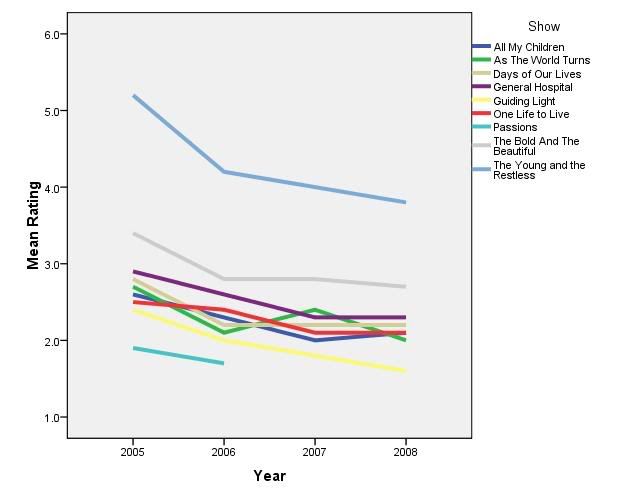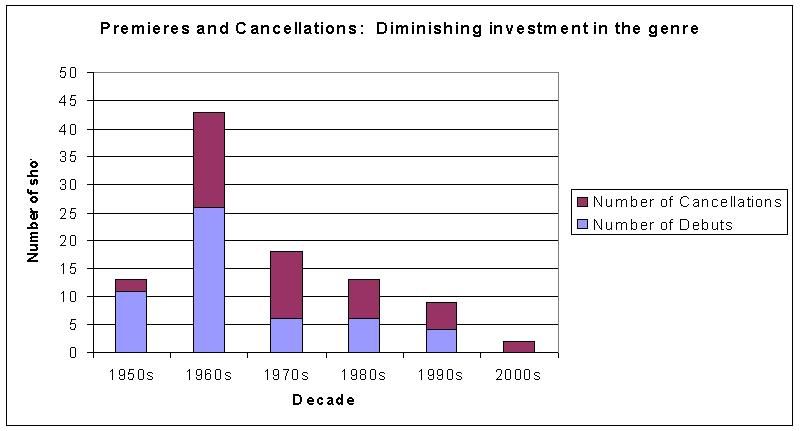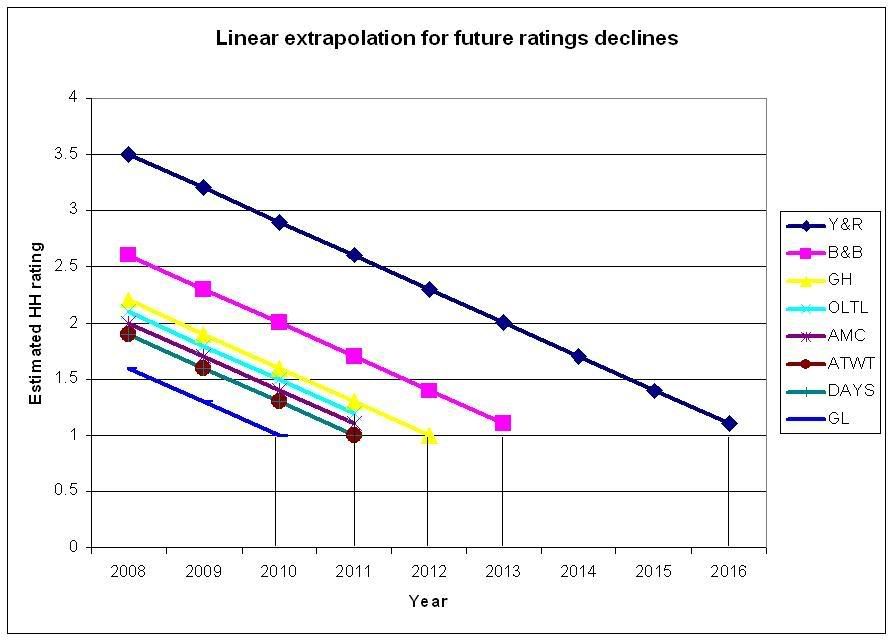

One the topics I mentioned wanting to address a few weeks ago was “Damon Jacobs and "Shouldless". That is only tangentially related to soaps, and yet I really think he has an awful lot to tell us all.” I’m going to meander just a bit to get there, ‘cause that’s what I do.
==
Back in 1988, I think, when I was in graduate school (and scraping by on about $500/month), I was shocked when I saw a new (to me) magazine at the grocery store,
Soap Opera Weekly. I could scarcely imagine spending the money on it, but I did. It was not the last time.
As the magazine evolved, one of my favorite weekly features was “
Marlena Delacroix”. In that era, there was precious little criticism available (in magazines, and I never even heard of e-mail until 1987…I didn’t discover Usenet as a soap community until 1989), and even less that was as erudite and well-argued as Ms. Delacroix. Wrapped in a humorous package of “moi” and “toi” and “mon ami”, it was addictive and thought provoking.
Therefore, several years back, when Marlena re-appeared on Jack Myers’ website, I was delighted and, being the true fanboy I am, sent her an email of gratitude and welcome. As she established
her own site, I cheered and have visited regularly since.
In the best tradition of soapdom, Ms. Delacroix has used her own “veteran” status to nurture young talent. In this case, she introduced me (and many others) to two fabulous new voices (at least, voices we hadn’t heard before)…
Patrick Erwin and
Damon Jacobs. I’ve cited Patrick here many times (including in my
penultimate post, before this one).
Damon, on Marlena’s site, works as the “
Soap Shrink”. In that role, he tries to provide a cogent analysis of how our favorite dysfunctional characters have come to be as they are. For me, the insights he tries to provide into possible motivations and origins only deepens my enjoyment of the characters.
Spinelli has Aspergers? I’m not sure, but it sure is fun to think about.
==
Soap Shrink led me to Damon’s own site,
Absolutely Should-Less. Now, fair disclosure: Damon and I kind of share a profession (not really…but I work as a psychologist and methodologist in a university) as well as a soap obsession, so I’m probably especially interested in his insights.
I’m not alone. Just last week, the Canadian TV Guide’s Nelson Branco featured
a list of “Should-less” guidelines for daytime.
Totally paraphrasing (and probably mis-characterizing…I hope not), I read Damon’s core message as having two key pieces: First, fight the triumph of the super-ego. Let go of the excessive shoulds and oughts that rule our behaviors (and bring us guilt and shame and all their attendant consequences), and live authentically and concordant with one's goals. Second, live in the now. Don’t focus on what should have been or what ought to be; take the current and controllable circumstances of your life and optimize your happiness and goal pursuit within that context.
From
Damon’s site:
If you have ever experienced any stress or sadness from looking in the mirror and telling yourself you should lose weight, make more money, think smarter, look better, or be any different than who you are today, then you are suffering the consequences of devastating "shoulds" … What makes this book different from other self-help books is that it identifies the role and responsibility of media and culture in the creating and sustaining of harmful "shoulds." It recognizes how institutional racism, sexism, and homophobia play a significant role in determining one's self-esteem, and how the "status-quo" stands to benefit from individuals feeling bad about themselves.
A visit to Damon’s current site shows that in March he did a series on having the “Best Recession Ever”. With insights like “Lose the "should" about your money...at least for now,” and “Resist holiday gift-giving ‘shoulds’” and “Recognize the Recession in your mind”, Jacobs’ entries really show how the many expectations and obligations of our social world can really work to make the current economic crisis even more difficult, phenomenologically, than it needs to be. Consequently, closing one’s ears to media and social influences that shape our expectations, as well as taking a firm inventory of what we really need and want, can really help us weather the trials of these economic days.
Important messages! For any one of us who have laid waste to vast portions of our lives by listening to the “other” and not to ourselves, there cannot be better advice. Damon leads us to life than can be relatively free of the self-judgment that causes us to miss so many happy moments. And that is my segue back to the world of soaps….
==
...I am a regular participant on several soap opera boards and blogs, and there is a persistent place where I disagree with many of my colleagues. It goes something like this:
OTHERS (this is a mini-compendium): Soaps are in the current state they are because of creative bankruptcy. The “suits” made bad decisions to increase the ‘shock value’ and ‘youth appeal’ of the soaps. We can lay the blame at
Gloria Monty’s feet. She started the disregard of veterans and history – the “youthquake” – that has ruined daytime with sensationalism. Moreover, the writing teams and executive producers of these shows should listen to the fans more. They should write genuine happiness more often. They should…
And on it goes.
ME: Soaps would be, more or less, where they are today regardless of a single creative decision. There are larger demographic and viewership factors at play. These factors have led to the ratings and economic decline of all of network television, not just soaps. Soaps would still be where they are because women no longer work at home as much, families don’t watch together as much. Moreover, each generation needs to identify its own cultural signposts, and soaps – sadly – are the signposts of our mothers and grandmothers.
So how does this relate to “Should-less”?
Take the cancellation of
Guiding Light. I have read people say they would turn off CBS for cancelling the show. (Ignoring the 72 years of investment CBS has made). I have seen desperation to continue the show elsewhere (and that worries me that
anticipatory socialization, to prepare for the show’s passing, is not being done). I have seen so much anger directed at a host of past creative types (
Jill Farren Phelps, John Conboy, Paul Rauch, Mary Alice Dwyer Dobbin, Ellen Weston, Ellen Wheeler, David Kreizman, and on and on).
In all the blame and rancor, it seems likely to me that for some fans, the light might go out in a blaze of anger and recrimination.
Therewith goes the joy.
I think, whether in 2009 or 2016, the Guiding Light would have been extinguished sooner than later…even if
Nancy Curlee or
Douglas Marland had never stopped writing, and even if
Gail Kobe had never stopped producing, and even if
Ed Trach were still at P&G. It would have happened. Because forces outside of daytime and outside of creative influence are bringing us to this place. The genre is gradually passing, as all genres must.
What if we just threw the
shoulds away? What if we
savored what we were enjoying (Otalia! Phillip happens here! Shane and Dinah! Rick and Mindy! Might Reva survive and reunite with Josh before it is all over?)? What if we treasured these final days, and looked back on the 72 or 57 or whatever years of enjoyment?
And let the rest go?
Instead of focusing on the myriad
shoulds that might have given GL a tiny bit more of (maybe lower quality) life, what if we looked back in
gratitude and
thanks? What if we used the rich gift of a lifetime of
GL, and used it to inspire our next creative pursuit? What if, in stormy times, we looked back on moments we once enjoyed, and took comfort in having known Springfield?
Let me also say, this is not specific to
GL. As I have expressed elsewhere on this blog, I think every one of us soap fans will experience this in the near future. Shall we repeat the litany of blame and anger each time? Or is there another way? "Thanks for the memories"?
Damon’s lessons for living, I think, can help us through this sunsetting of the genre. Indeed, with regard to GL, I think there may already be some good models, like
DaytimeDirect and the
GL Appreciation thread at SoapOperaNetwork. I'd encourage those who are angry to maybe look at these sites. I think they might help.












